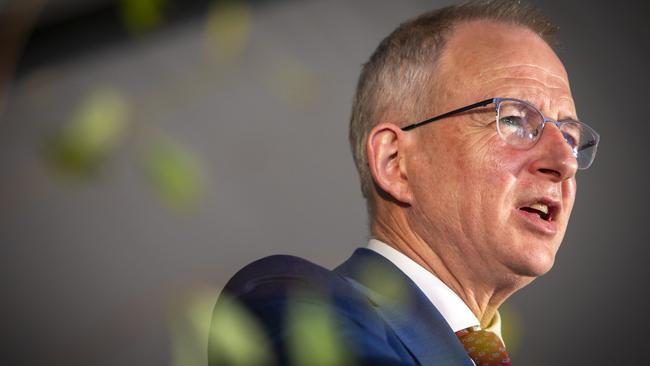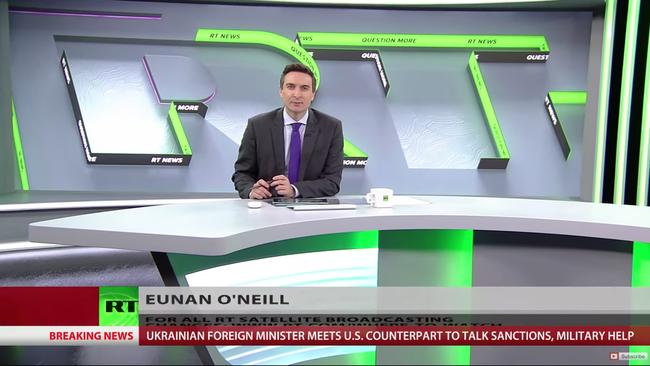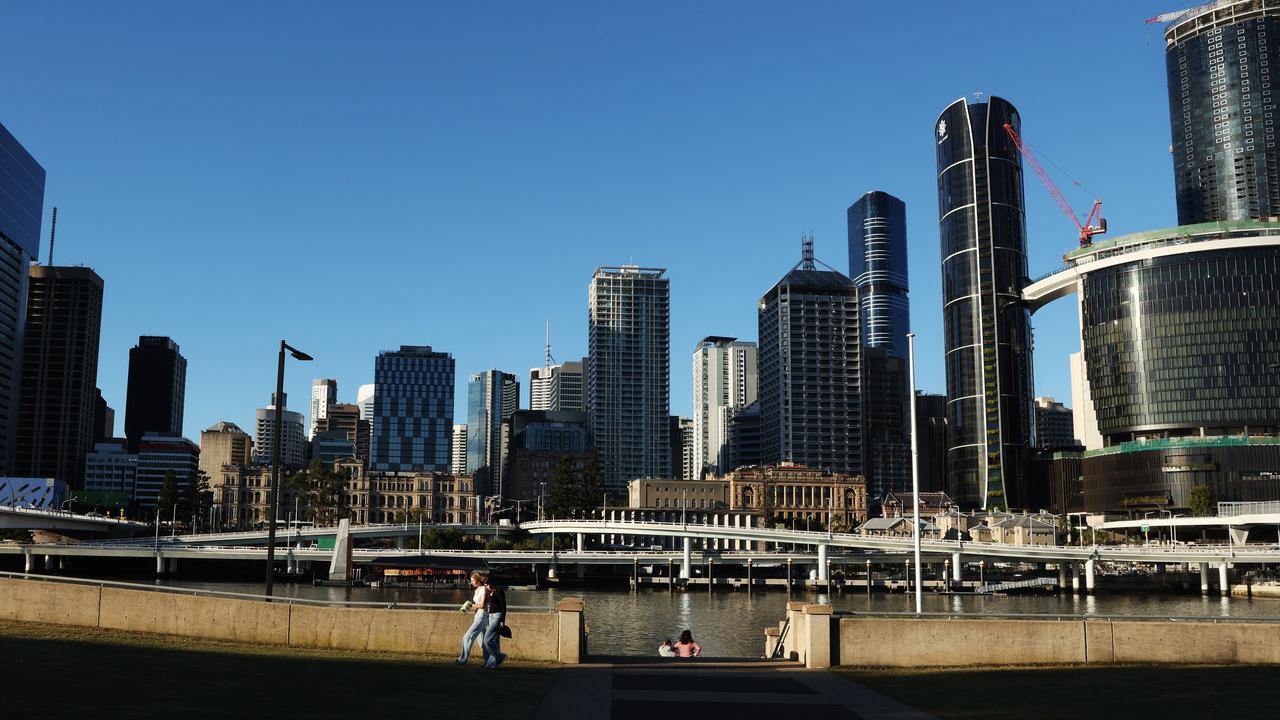Communications Minister Paul Fletcher puts heat on tech giants over spread of Russian spin
Communications Minister Paul Fletcher has upped the ante on tech giants and social media platforms that fail to guard against the online spread of Russian propaganda.

Business
Don't miss out on the headlines from Business. Followed categories will be added to My News.
Communications Minister Paul Fletcher has upped the ante on tech giants and social media platforms that fail to guard against the online spread of Russian propaganda, warning the companies’ local bosses that they could be breaking Australian law if they allow misinformation about the conflict to be published on their sites.
Last week, Mr Fletcher wrote a letter to the Australian heads of Meta (Facebook), Apple, TikTok, Twitter, Snapchat, Reddit, Google and Microsoft to request the companies take urgent action to block online content generated by Russian state media that promotes “violence, extremism and disinformation in relation to the invasion of Ukraine”.
The Australian has been told that while some companies have responded in writing to the government, others are yet to do so.
On Sunday, Mr Fletcher applied additional pressure on the major digital platforms to act, reminding them of their obligations under Australian law.
“Late last week I wrote to the major digital platforms flagging our concerns about Russian propaganda distributed to Australian customers via their channels,” he said.
“I would also remind the platforms they are signatories to the Australian Code of Practice on Disinformation and Misinformation.
“Several platforms have already advised of actions they have taken; we will continue to monitor and to assess if further action is required.
“A core principle of the Morrison government is that big tech will operate according to Australian law, and with regard to Australian community expectations, when operating within our borders.”
Last month Foxtel and SBS suspended the broadcasting of Russian news services amid serious concerns about the information being aired on the channel.
A local spokeswoman for Twitter said the platform had taken steps to stop misinformation on its site relating to the crisis, including using “a label to include any tweets of links from Russian state-affiliated media outlets”.
“We’ll start by labelling Russian state-affiliated media websites, but we intend to add to additional state-backed media outlets from other countries in the coming weeks,” she said.
“Our global approach outside of the EU will continue to focus on de-amplifying state-affiliated media content across our service and providing important context through our labels.”
A Meta (Facebook) spokeswoman said the company had recently been in contact with the Ukrainian government about the issue.
“At their request, we have restricted access to several accounts in Ukraine, including those belonging to some Russian state media organisations,” she said.
“We are also reviewing other government requests to restrict Russian state-controlled media.”
Many international news outlets have suspended their broadcasting operations in Russia after President Vladimir Putin enacted legislation to punish “fake news”, with offenders facing up to 15 years in jail.
The BBC, CNN, ABC News, CBS News and Bloomberg are among those to cease operations in Russia after Putin’s latest move.

Fines will be imposed on people who make public calls for sanctions against Russia.
The BBC’s director-general Tim Davie said in a statement on the weekend: “The legislation appears to criminalise the process of independent journalism.
“It leaves us with no other option than to temporarily suspend the work of all BBC News journalists and their support staff within the Russian Federation while we assess the full implications of this unwelcome development.
“Our BBC News service will continue to operate from outside Russia.”
But Russia’s state-controlled television network, Russia Today, has also hit back at the banning of their stations airing in some countries, including Australia.
The station’s anchor Eunan O’Neill said on air that Moscow had been condemned by the US National Security Council for “allegedly spreading lies and censoring media inside the country”.
In an on-air interview last week South African politician and activist Tokyo Sexwale told O’Neill: “We are part of the global community, so we get news from everywhere, all international networks — ABC, CNN, Sky and all types of things.
“We are disappointed with the fact RT has been shut down.
“These are the people who taught us about the freedom of the media and the press, not the silencing of the voices of others.”
O’Neill also encouraged viewers who were still able to watch their service to “give our Twitter page a follow’.
“It will keep you in the know at a time when the truth can be hard to find,” he said.
More Coverage
Originally published as Communications Minister Paul Fletcher puts heat on tech giants over spread of Russian spin



